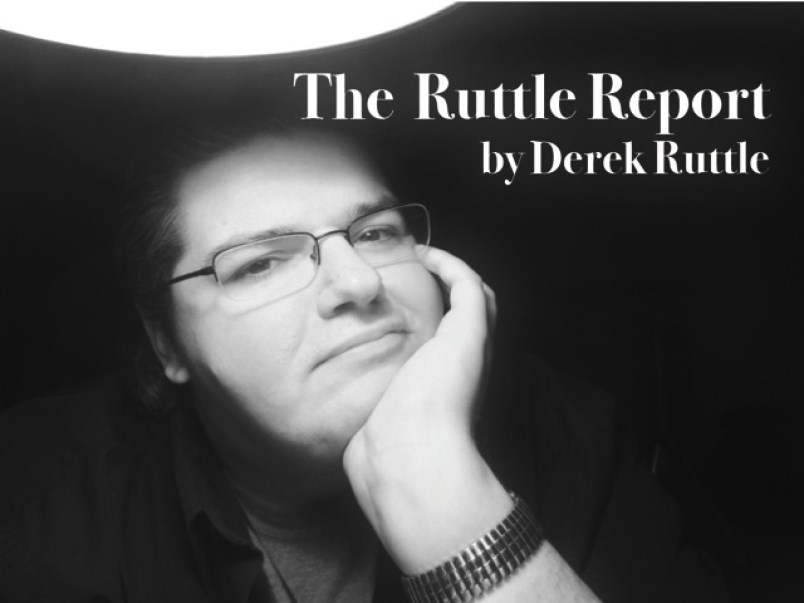Hey kids!
Who remembers the Holocaust?
How's that for a way to start a column?
Of course, many know that the Holocaust was one of the worst crimes in human history over the last 100 years, with the horrific "leadership" of Adolf Hitler remembered as the stuff of pure nightmares as the Nazi Party carried out the systematic murder of millions of Jewish people.
But then there are the Holocaust deniers; the people who refuse to believe that such atrocities actually happened.
From Wikipedia:
"This denial is known as an antisemitic conspiracy theory, which asserts that the Nazi genocide of Jews, known as the Holocaust, is a myth, fabrication, or exaggeration. Holocaust denial involves making one or more of the following false claims:
- Nazi Germany's "Final Solution" was aimed only at deporting Jews from the territory of the Third Reich and did not include their extermination.
- Nazi authorities did not use extermination camps and gas chambers for the mass murder of Jews.
- The actual number of Jews murdered is significantly lower than the accepted figure of approximately six million.
- The Holocaust is a hoax perpetrated by the Allies, Jews, or the Soviet Union.
The methodologies of Holocaust deniers are based on a predetermined conclusion that ignores overwhelming historical evidence to the contrary. Scholars use the term denial to describe the views and methodology of Holocaust deniers in order to distinguish them from legitimate historical revisionists, who challenge orthodox interpretations of history using established historical methodologies. Holocaust deniers generally do not accept denial as an appropriate description of their activities and use the euphemism revisionism instead. In some former Eastern Bloc countries, Holocaust deniers do not deny the mass murder of Jews, but they do deny the participation of their own nationals in the Holocaust.
Holocaust denial is considered a serious societal problem in many places where it occurs, and it is illegal in Canada, Israel and many European countries."
Yikes.
And while I've unfortunately heard of Holocaust deniers, what I've been asking myself since Monday morning is this: Are there actual deniers of what was done in Canada's residential school system against First Nations children?
Let me explain.
On Monday morning, I received an email from a man in Toronto who'd read my article on what Grade 12 students from LCBI had created last week with their incredible project that had focused on the journey of Chanie Wenjack, a young First Nations boy who escaped a residential school in Kenora, Ontario back in 1966 but died on his journey back home. Now, taking in what the students created, it was obvious to me very quickly that they'd done some deep research.
However, this person's email to me made claims that, "Unfortunately, the students' project upon which it was based has very little basis in reality." He then listed what he claimed the conditions at the school were actually like, including the claim that students "were free to come and go as they pleased" and that many of the students thanked the school principal and his wife "for making them feel loved and cared for at the school."
Perhaps it should also be pointed out that this person is an author and has written a book on Chanie Wenjack, er, sorry, "Charlie" Wenjack that he certainly hopes will sell well. (sorry, no free plug here)
I responded to him, explaining that as a journalist, it's my job to report and photograph what I see based on what is presented. What was presented to me was a presentation based on what I can only surmise was weeks of research by a classroom of senior students, guided by their teacher. Based on this man's email to me, what I saw right away was a clash of historical perspectives, and I told him that I don't believe that it's the job of the media to get in the middle of things of that nature and possibly dissuade something that was created by high school students simply because those other perspectives exist.
If it WAS the job of the media to do so, then every article you've ever read about the Holocaust is only 50% complete.
Another email exchange went down, and I respectfully told this person that I will be bowing out of any discussion surrounding what may or may not have actually happened in Canada's residential schools. If he so chooses, I provided him with the email address of LCBI teacher Rick Delainey, should he wish to discuss things with him.
What I found to be very profound is the fact that this person who decided to reach out to me with his views on "what really happened" at this particular residential school in Kenora is apparently a former reporter himself.
Why he appears to deny the truth of residential schools, as a person who once told the news himself, is beyond me.
There already are too many of us in the media who double dip on controversy, all for the glory of those sweet clicks, viewership ratings, and readership web traffic. Going one step further and denying the atrocities suffered by far too many children (see: grave sites dotting our Canadian landscape) is all manner of baffling and sad.
I've done my best over the course of 17 years not to be one of those journalists, and I know that I always will be.
For this week, that's been the Ruttle Report.




